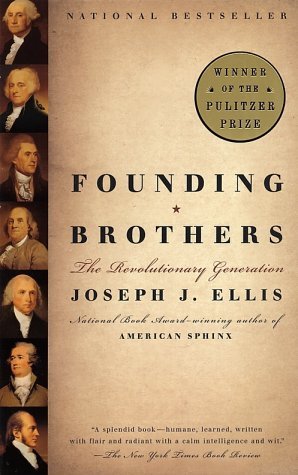
Hindsight, then, is a tricky tool. Too much of it and we obscure the all-pervasive sense of contingency as well as the problematic character of the choices facing the revolutionary generation. On the other hand, without some measure of hindsight, some panoramic perspective on the past from our perch in the present, we lose the chief advantage—perhaps the only advantage—that the discipline of history provides, and we are then thrown without resources into the patternless swirl of events with all the time-bound participants themselves. What we need is a form of hindsight that does not impose itself arbitrarily on the mentality of the revolutionary generation, does not presume that we are witnessing the birth of an inevitable American superpower. We need a historical perspective that frames the issues with one eye on the precarious contingencies felt at the time, while the other eye looks forward to the more expansive consequences perceived dimly, if at all, by those trapped in the moment. We need, in effect, to be nearsighted and farsighted at the same time.
On the farsighted side, the key insight, recognized by a few of the political leaders in the revolutionary generation, is that the geographic isolation of the North American continent and the bountiful natural resources contained within it provided the fledgling nation with massive advantages and almost limitless potential. In 1783, just after the military victory over Great Britain was confirmed in the Treaty of Paris, no less a figure than George Washington gave this continental vision its most eloquent formulation: “The Citizens of America,” Washington wrote, “placed in the most enviable condition, as the sole Lords and Proprietors of a vast Tract of Continent, comprehending all the various soils and climates of the World, and abounding with all the necessaries and conveniences of life, are now by the late satisfactory pacification, acknowledged to be possessed of absolute freedom and Independence; They are, from this period, to be considered as Actors on a most conspicuous Theatre, which seems to be peculiarly designed by Providence for the display of human greatness and felicity.” If the infant American republic could survive its infancy, if it could manage to endure as a coherent national entity long enough to consolidate its natural advantages, it possessed the potential to become a dominant force in the world.
On the nearsighted side, the key insight, shared by most of the vanguard members of the revolutionary generation, is that the very arguments used to justify secession from the British Empire also undermined the legitimacy of any national government capable of overseeing such a far-flung population, or establishing uniform laws that knotted together the thirteen sovereign states and three or four distinct geographic and economic regions. For the core argument used to discredit the authority of Parliament and the British monarch, the primal source of what were called “Whig principles,” was an obsessive suspicion of any centralized political power that operated in faraway places beyond the immediate supervision or surveillance of the citizens it claimed to govern. The national government established during the war under the Articles of Confederation accurately embodied the cardinal conviction of revolutionary-era republicanism; namely, that no central authority empowered to coerce or discipline the citizenry was permissible, since it merely duplicated the monarchical and aristocratic principles that the American Revolution had been fought to escape.
References:
Advertisements Share this:





